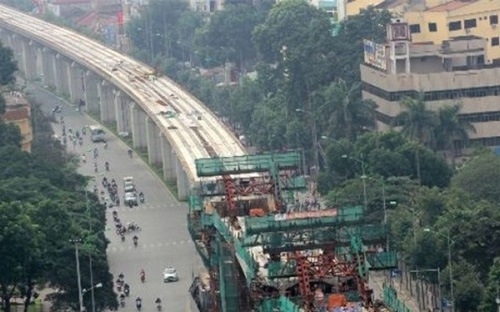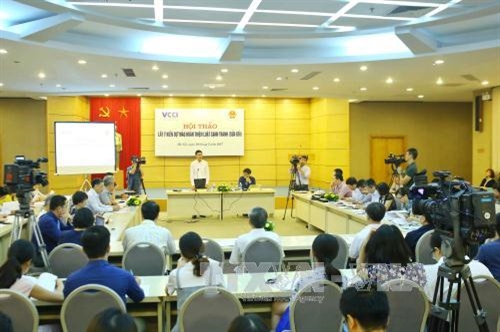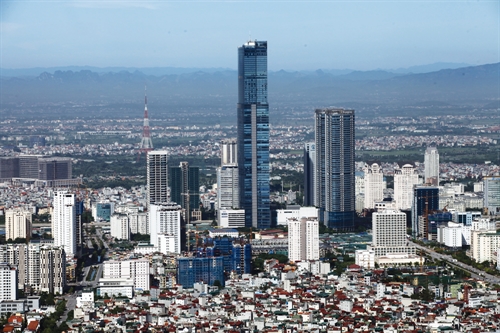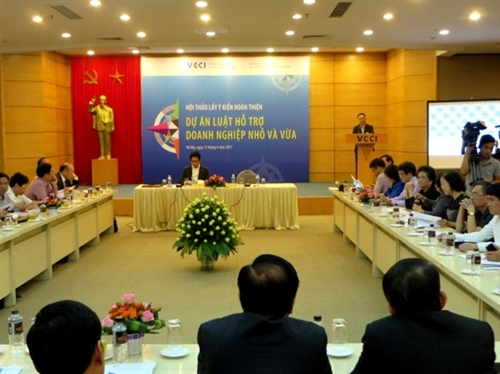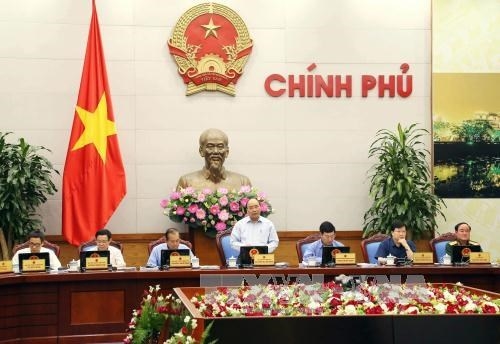Bui Duc Giang, LL.D.[1]
KEY POINTS
- Employers may only impose disciplinary sanctions that are expressly provided in their internal labor rules;
- Disciplinary sanctions can be formal warnings, deferral of the period for wage increase for a maximum of six months, demotion or dismissal, depending on the extent and significance of the employee’s breach and reasons for it;
- Dismissal may be used in a limited number of instances, including gross misconduct, recidivism and unexplained and unauthorized absence;
- Before the employer makes a decision, there must be a disciplinary hearing at which the employee should have the opportunity to state his/her case;
- Suspension with pay can be used only when necessary for enabling an investigation to be carried out unhindered.
General requirements
Article 118 of Labor Code No. 10/2012/QH13 dated June 18, 2012 (the Labor Code), defines labor discipline as “rules governing compliance with time, technology, and management of business and production in internal labor rules”[2]. Employers are required to include information about disciplinary breaches and applicable disciplinary sanctions in their internal labor rules (Point e, Clause 2, Article 119 of the Labor Code). Pursuant to Clause 3, Article 128 of the Labor Code, they may not impose disciplinary sanctions in case of breaches which are not provided in their internal labor rules. However, there is no express requirement for such procedures to form part of the contract of employment itself.
An employer may not impose more than one disciplinary sanction for a single disciplinary breach (Clause 2, Article 123 of the Labor Code). If an employee commits multiple disciplinary breaches at the same time, then only the heaviest sanction corresponding to the most serious breach will be applied (Clause 3, Article 123 of the Labor Code).
Furthermore, fining and deduction from wage in lieu of imposing disciplinary sanctions are strictly prohibited (Clause 2, Article 128 of the Labor Code).
Physical violence to, or infringement of the dignity of, the employee during the implementation of disciplinary procedures is also prohibited (Clause 1, Article 128 of the Labor Code).
Disciplinary action may not be taken against an employee who commits a disciplinary breach when he/she is suffering from a mental or other illness rendering him/her unaware or unable to control his/her actions (Clause 5, Article 123 of the Labor Code).
Likewise, under Clause 4, Article 123 of the Labor Code, employers are not allowed to implement disciplinary procedures against employers when:
- The employee is on sick leave, leave for recuperation or leave with the employer’s consent;
- The employee is detained or temporarily held in custody;
- The employee is awaiting results from a competent investigative agency verifying facts and preparing conclusions in case of gross misconduct[3];
- A female employee is pregnant or on maternity leave or raising a child aged under 12 months.
Under Clause 4, Article 30 of Decree No. 05/2015/ND-CP dated January 12, 2015, guiding the implementation of a number of articles of the Labor Code (Decree 05), decisions to impose disciplinary sanctions may only be made by persons empowered to sign labor contracts on behalf of the employer[4] and persons authorized to sign contracts of employment only have authority to impose sanctions in the form of formal warnings.
 |
| Making garment products in MLB Tenergy Co., Ltd., in Yen Thanh district, Nghe An province__Photo: Bich Hue/VNA |
Disciplinary sanctions
As per Article 125 of the Labor Code, disciplinary sanctions include: (i) formal warnings, (ii) deferral of the period for wage increase for a maximum of six months; (iii) demotion, and (iv) dismissal.
Employers may not impose any disciplinary sanctions other than those four types of sanction. Implementation of any specific disciplinary sanction depends on the extent and significance of the employee’s breach and reasons for it as outlined in internal labor rules, subject to rules relating to dismissal mentioned below.
In practice, employers should use informal action to deal with initial instances of minor misconduct and should not dismiss an employee for a first disciplinary breach, unless expressly permitted by law.
Furthermore, in deciding an appropriate sanction, the employer should take inter alia the following matters into account:
- the extent and significance of the misconduct itself;
- the employee’s previous record;
- the employee’s length of service (seniority);
- matters raised in mitigation by the employee; and,
- the employee’s position[5].
Under Clause 1, Article 126 of the Labor Code, an employer may take disciplinary action in the form of dismissal in the following three cases:
· Gross misconduct: an employee commits an act of theft, embezzlement, gambling, deliberate violence causing injury, uses illegal drugs at the workplace, discloses technology or business secrets or infringes upon intellectual property rights of the employer, or is guilty of conduct causing serious damage or which threatens to cause particularly serious damage to property or interests of the employer;
· Recidivism: an employee is disciplined in the form of deferral of a wage increase and then repeats the disciplinary breach during the period when the initial disciplinary measure had not been absolved, or an employee is disciplined in the form of demotion and thereafter repeats the disciplinary breach. Recidivism means a case where an employee repeats the breach for which he/she has already been sanctioned and for which the disciplinary action record has not yet been absolved.
· Unexplained and unauthorized absence: an employee is absent for five days in one month or for an aggregate of 20 days in one year without plausible reasons. Cases of absence for “plausible reasons” include natural disasters, fire, employee’s illness, illness of a relative of the employee[6] as certified by a medical establishment, and other cases specified in internal labor rules.
With regard to gross misconduct, it seems that by virtue of Article 130 of the Labor Code, serious damage seems to mean damage with a value exceeding the amount of 10 months of minimum wage as stipulated by the Government applicable to the employee’s working location.
It is also noteworthy that giving bribes does not feature in the above category of gross misconduct. Under Article 278 of Penal Code No. 15/1999/QH10 dated December 21, 1999, as revised in 2009 (the Penal Code), embezzlement means the act by which a person abuses their position and/or powers to unlawfully appropriate the property which that person has the responsibility to manage. This Code expressly makes a distinction between embezzlement and taking of bribes (Article 279) and giving of bribes (Article 289) although they are all considered criminal offences. Furthermore, it may be difficult to prove that the giving of a bribe would constitute a conduct causing serious damage or threatening to cause particularly serious damage to property or interests of the employer. Therefore, in principle if the employee has given a bribe, the employer may not immediately consider dismissing him/her. Therefore, the employer’s right to dismiss an employee for breach of his/her obligation not to give bribes or other improper pay is not straightforward as the employer may exercise this right only if this (mis)conduct features in the internal labor rules as a disciplinary breach and the employee has repeated it as mentioned in bullet point 2 above.
Furthermore, under Clause 1, Article 127 of the Labor Code, if an employee is disciplined by the form of demotion continues to breach labor discipline after three years have elapsed, such employee will be deemed not to repeat the disciplinary breach. In addition, under the same article, an employee who is given a caution and an employee who has been disciplined by deferral of the period for wage increase will, after three and six months respectively from the date of the sanction, be automatically absolved of the sanction if not repeating the disciplinary breach. In addition, in case an employee who was disciplined in the form of deferral of the period for wage increase has observed half of the term of the disciplinary sanction and has shown improvement, the employer may consider a reduction of such term (Clause 2, Article 127 of the Labor Code).
The employment contract will terminate in case of dismissal (Clause 8, Article 36 of the Labor Code). In principle, within seven working days from the date of termination of a labor contract, each party must fully pay all sums outstanding to the other party. In special cases this time limit may be extended but must not exceed 30 days (Clause 2, Article 47 of the Labor Code).
Disciplinary meeting
Before the employer makes a decision, there must be a disciplinary hearing at which the employee has the opportunity to state his/her case. One of the key elements to a fair disciplinary process is that employees should have opportunity to state their cases themselves or through their lawyers in response to allegations before a decision is made (Point c, Clause 1, Article 123 of the Labor Code).
The employee must be present at the hearing. In case of an employee under 15 years of age, a parent or lawful representative must participate in the disciplinary meeting (Point c, Clause 1, Article 123 of the Labor Code). Furthermore, there must be participation by the organization representing the grassroots labor collective (Point b, Clause 1, Article 123 of the Labor Code) which is the executive committee of the grassroots trade union or the executive committee of the immediate superior trade union if the employer does not yet have a grassroots trade union (Clause 1, Article 30 of Decree 05).
The employer must give those persons a notice requiring their attendance in the disciplinary meeting at least five working days before the meeting (Clause 1, Article 30 of Decree 05). If anyone of those required participants fails to attend after the employer has given a notice, in principle the employer may still hold the meeting (Clause 1, Article 30 of Decree 05).
Under Point d, Clause 1, Article 123 of the Labor Code and Clause 3, Article 30 of Decree 05, minutes of the disciplinary meeting must be prepared and signed by the required participants who present at the meeting and if anyone fails to sign the minutes then reasons-therefor must be stated in the minutes.
The burden of proof of fault of the employee lies with the employer (Point a, Clause 1, Article 123 of the Labor Code).
Suspension with pay
Under Clause 1, Article 129 of the Labor Code, the employer may suspend an employee if the breach committed is complex in nature and there is a reasonable ground to believe that any further work carried out by the employee may jeopardize the investigation. Such suspension may be imposed only after consultation of opinions of the organization representing the grassroots labor collective. As such, the key element of suspension is to enable an investigation to be carried out unhindered.
The period of suspension must not exceed 15 days, or 90 days in special instances and during that period, the employee may be advanced half of the amount of his/her wage before the suspension (Clause 2, Article 129 of the Labor Code). Upon the expiration of the period of suspension, the employer must admit the employee back to work. In case the employee is subjected to a disciplinary sanction, he/she is required to refund the amount of wage advanced to him/her (Clause 3, Article 129 of the Labor Code). Where no disciplinary sanction is imposed, the employer must pay the employee the full wage for the whole period of suspension (Clause 4, Article 129 of the Labor Code).
It should be made clear that suspension is not an assumption of guilt and is not considered a disciplinary sanction.
In light of the above, it can be inferred that Vietnamese employment legislation has established quite clear and complete rules on labor discipline. It is desirable for employers to implement well-drawn, written disciplinary procedures.-
